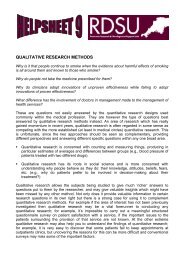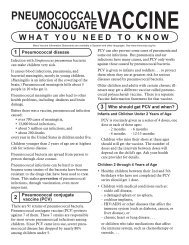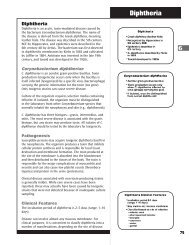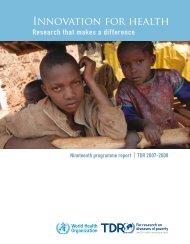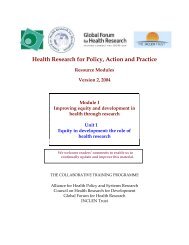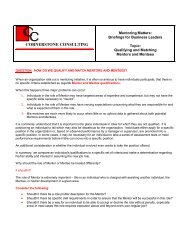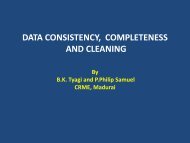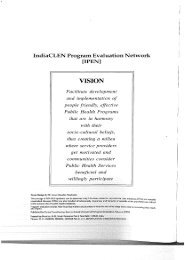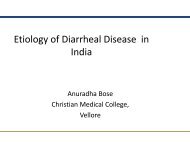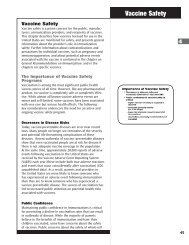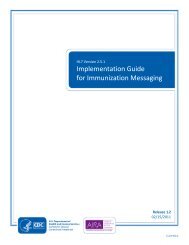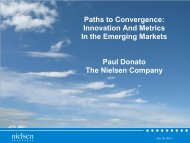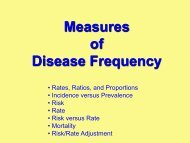Measles, Mumps, and Rubella - Centers for Disease Control and ...
Measles, Mumps, and Rubella - Centers for Disease Control and ...
Measles, Mumps, and Rubella - Centers for Disease Control and ...
You also want an ePaper? Increase the reach of your titles
YUMPU automatically turns print PDFs into web optimized ePapers that Google loves.
Vol. 47 / No. RR-8 MMWR 21SPECIAL CONSIDERATIONS FOR VACCINATIONPersons Infected with Human Immunodeficiency Virus (HIV)Although the risk <strong>for</strong> measles exposure is currently low in most areas of the UnitedStates <strong>and</strong> the Western Hemisphere, this risk remains high in many other regions <strong>and</strong>measles continues to be imported into the United States. HIV-infected persons are atincreased risk <strong>for</strong> severe complications if infected with measles (126,127 ). AmongHIV-infected persons who did not have evidence of severe immunosuppression(Table 2), no serious or unusual adverse events have been reported after measles vaccination(123–126 ). There<strong>for</strong>e, MMR vaccination is recommended <strong>for</strong> all asymptomaticHIV- infected persons who do not have evidence of severe immunosuppression<strong>and</strong> <strong>for</strong> whom measles vaccination would otherwise be indicated. MMR vaccinationshould also be considered <strong>for</strong> all symptomatic HIV-infected persons who donot have evidence of severe immunosuppression (Table 2) (128,129 ). Testing asymptomaticpersons <strong>for</strong> HIV infection is not necessary be<strong>for</strong>e administering MMR or othermeasles-containing vaccine (130 ).Transient increases in HIV viral load have been observed after administration ofother vaccines to HIV-infected persons (131,132 ). The clinical significance of theseincreases is not known. Theoretically, a similar increase also may occur after MMRvaccination of HIV-infected persons.Because the immunologic response to live <strong>and</strong> killed-antigen vaccines may decreaseas HIV disease progresses, vaccination early in the course of HIV infection maybe more likely to induce an immune response (133 ). There<strong>for</strong>e, HIV-infected infantswithout severe immunosuppression should routinely receive MMR vaccine as soon aspossible upon reaching the first birthday (i.e., at age 12 months)(130 ). Considerationshould be given to administering the second dose of MMR vaccine as soon as 28 days(i.e., 1 month) after the first dose rather than waiting until the child is ready to enterkindergarten or first grade. In addition, if at risk <strong>for</strong> exposure to measles, HIV-infectedinfants who are not severely immunocompromised should be administered singleantigenmeasles vaccine or MMR vaccine at age 6–11 months. These children shouldreceive another dose, administered as MMR vaccine, as soon as possible upon reachingthe first birthday, provided at least 1 month has elapsed since the administrationTABLE 2. Age-specific CD4+ T-lymphocye count <strong>and</strong> percent of total lymphocytes ascriteria <strong>for</strong> severe immunosuppression in persons infected with humanimmunodeficiency virus (HIV)Total CD4+ T-lymphocytesORCD4+ T-lymphocytes (as % oftotal lymphocytes)Age



